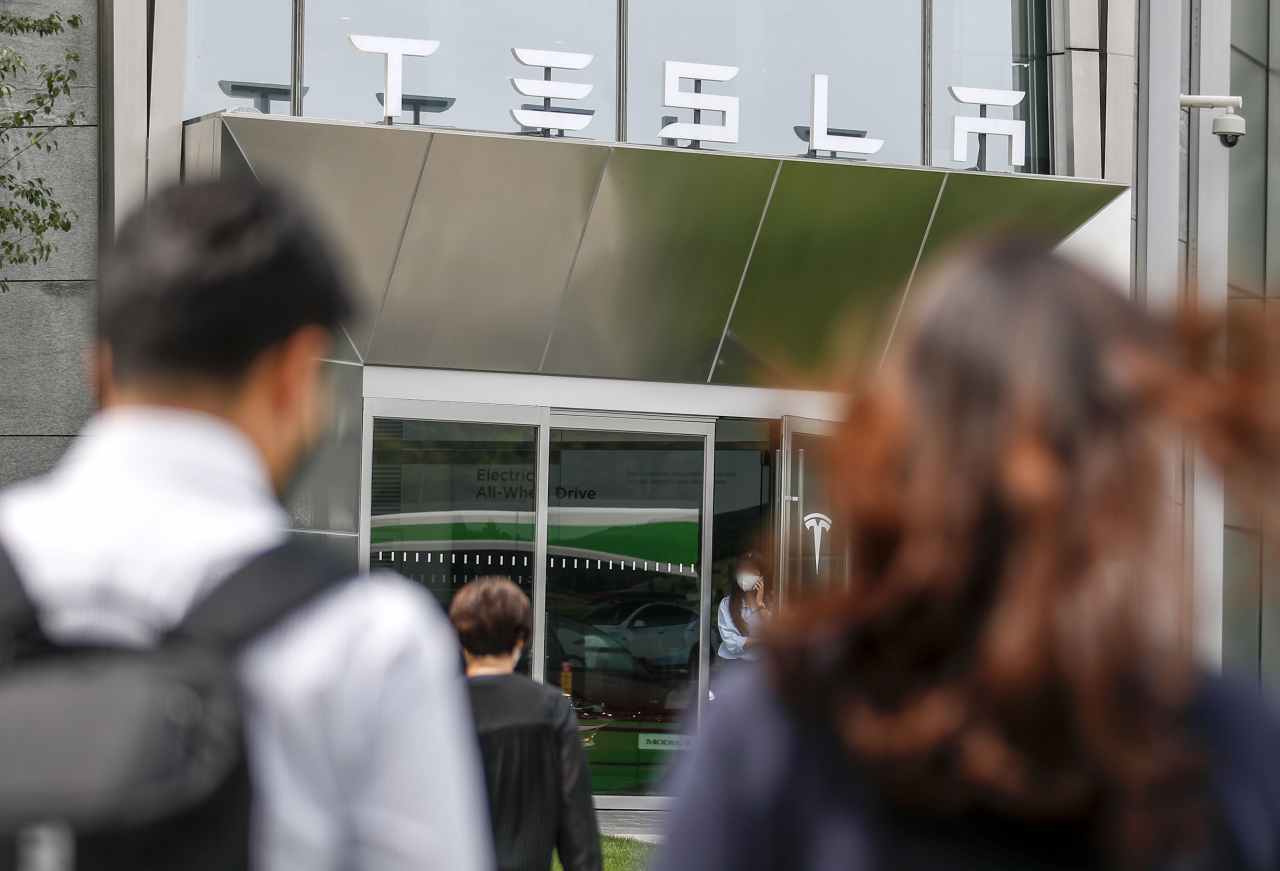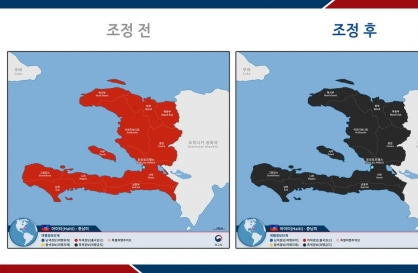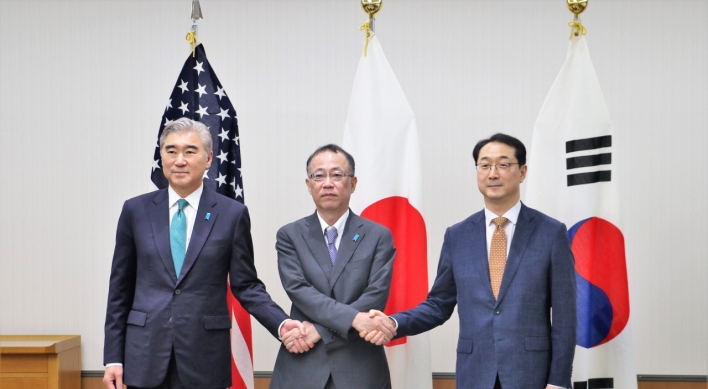[KH Explains] Is Tesla ditching its premium strategy?
Korean drivers increasingly turning their eyes to Tesla cars for bargains, not for luxury cachet
By Byun Hye-jinPublished : Oct. 22, 2023 - 14:23

Tesla, the world’s No. 1 electric vehicle manufacturer, is slashing car prices worldwide to further consolidate its leadership, seemingly willing to sacrifice its long-held premium brand image.
In September, Tesla’s Model Y sport utility vehicle topped import car sales in Korea, selling a total of 4,206 vehicles, an 876 percent surge from a month ago, according to market tracker Carisyou.
The Model Y outpaced Mercedes-Benz’s E-Class, the best-selling import car of 2022, which sold 3,511 units during the same period.
Industry watchers say that the latest Chinese-made Model Y is well-received in Korea because it is cheaper than the same model produced in the US.
Equipped with Chinese battery maker CATL’s lower-priced lithium iron phosphate (LFP) batteries, the car is almost 20 million won ($14,800) less expensive than the US-made version. With the Korean government’s EV subsidies, customers can buy the car for around 40 million won.
This is a drastic turnaround for Tesla, which has been enduring sluggish sales in Korea. In the January-August period, the US carmaker sold 4,545 vehicles, a 54.1 percent on-year decline and barely more than what the Model Y managed in a single month.
But Tesla's price-cutting strategy worked here as well as it did in other countries including the US and China. When Tesla made its debut in Korea back in 2017, its Model S, priced at over 115 million, sold only 364 units in a year.
Another key indicator of the carmaker’s strategy shift is its popularity in the used car market. The Model 3 compact has been topping the list of used EVs over the past year, according to the used car platform KB Chachacha.
“Topping the used car market means more cars are put up for sale,” said an official from a second-hand car platform on condition of anonymity. “Price-conscious customers are turning their eyes to the cheaper Model 3 rather than its pricier siblings.”
Experts say Tesla’s cheaper pricing is part of its bigger strategy to further expand its presence not just in the EV market but also in the burgeoning clean mobility market overall even at the cost of premium branding.
“In the early days, Tesla had attempted to win EV hegemony by selling costly cars and building a luxury brand image,” said Lee Ho-geun, a car engineering professor at Daeduk University. “But now the carmaker seems to be turning to the economies of scale – manufacturing a few car models on a massive scale while reducing operational costs. That’s why the carmaker has a higher profit margin despite price cuts.”
“But it comes with a price,” Lee added. “Drivers may lose their appetite for its higher-priced models.”
Park Cheol-wan, a car engineering professor at Seojeong University, said Tesla is keen on cutting prices as it ultimately aims to rule the lucrative clean energy market, especially the one for batteries.
“Tesla’s ultimate goal is to become a No. 1 energy company in selling batteries that can be plugged into the power grid and used to store energy for buildings and homes,” stressed Park. “On that note, its prime rival is not Hyundai Motor Group or German luxury car brands like Mercedes-Benz or BMW, whose main focus is on the mobility business.”
The company has already laid the groundwork for securing a broad customer base in its home ground, the US.
“Making most of the global carmakers, including Hyundai, to join its Supercharger network, it could access data of EV batteries such as charging status, battery performance and user pattern regardless of their brands,” said Lee.
Experts had mixed views on whether Tesla might add luxury car lineups in the long run -- Lee said it might operate cost-efficient models and premium cars to inch up profit, while Park argued it is unlikely. But both forecast that the EV maker will stick to its price reduction scheme for the time being.
A Tesla Korea official declined to comment on the matter citing confidentiality.
Meanwhile, Tesla’s third-quarter earnings that was announced last week fell below market expectations. Revenue increased 9 percent to $23.35 billion, while operating profits took a dive by 44 percent to $1.85 billion from a year earlier. During a conference call, Tesla CEO Elon Musk hinted at a further reduction in car prices, citing slowing demand and higher interest rates.



















